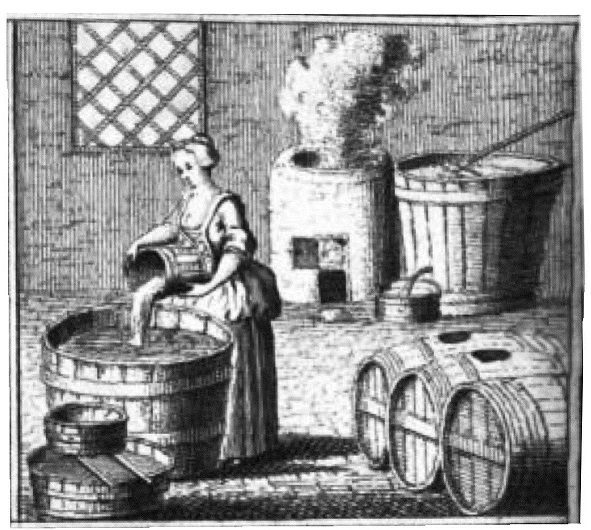
Here’s an interesting history paper by Marjolein van Dekken about female beer brewers in Holland during the fifteenth-seventeenth centuries:
As an important part of daily nourishment, women had always produced beer at home and for their own household. However, in Holland from the beginning of the thirteenth century beer production for the general market commenced. In the developing cities more and more labour was divided among specialised craftsmen. Professional breweries were established and the beer industry became a serious trade. In several cities of Holland like Haarlem, Delft and Gouda, the brewing industry played a major economic role during the fifteenth, sixteenth and seventeenth centuries. Even after the industry’s decline from the second half of the seventeenth century, breweries remained important for the local economy in those cities.
The full article is available as a Word document. It’s part of a project that looks at women’s work in the early modern period:
Foreign travellers who visited the Dutch Republic in the early modern period were impressed by the remarkable prominence of Dutch women in public places. Dutch women were reportedly independent and capable entrepreneurs, conducting business either in their own name, or that of their absent spouses. To what extent these frequently repeated observations reflect historical reality is still not clear. There is evidence that the economic success of the Dutch Republic is reflected in the position of women on the labour market. Two opposite hypotheses can be formulated. According to some historians female labour market participation in the Dutch Republic was lower than in neighboring countries. The economic prosperity and the high standard of living enabled the practical realization of the ideal of domesticity. Many women could afford not to work, and withdrew from the labour market as early as in the seventeenth century. According to the second, opposite hypothesis female labour market participation in the Dutch Republic was higher than elsewhere. Dutch gender norms were not very strict, women performed paid work on a large scale, and thus contributed to the increase of income and the standard of living and to the economic success of the Dutch Republic.
No Comments